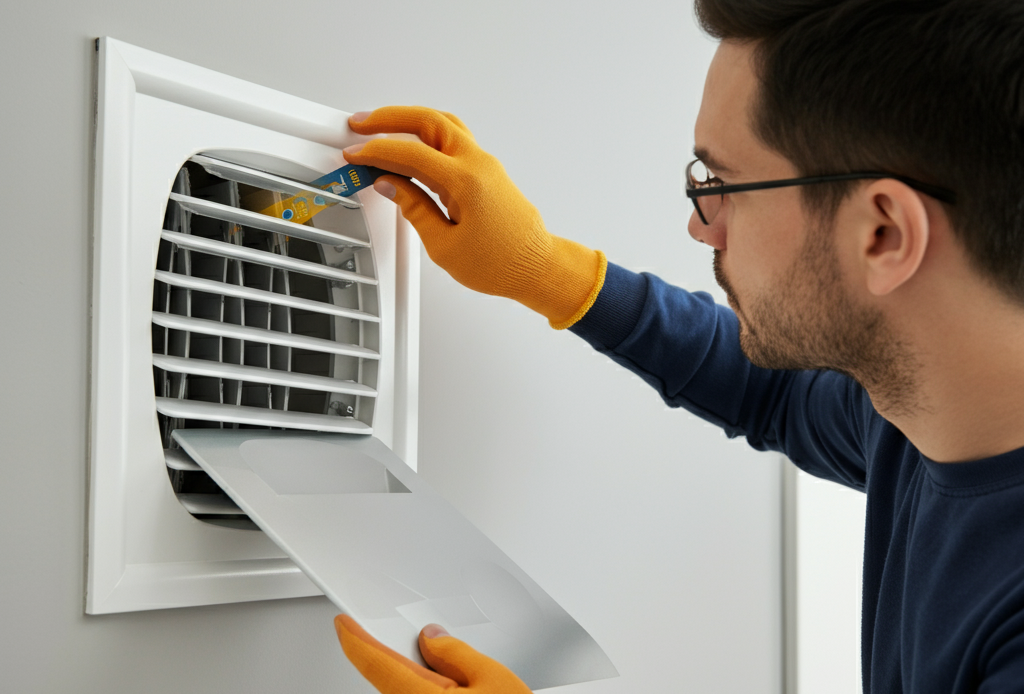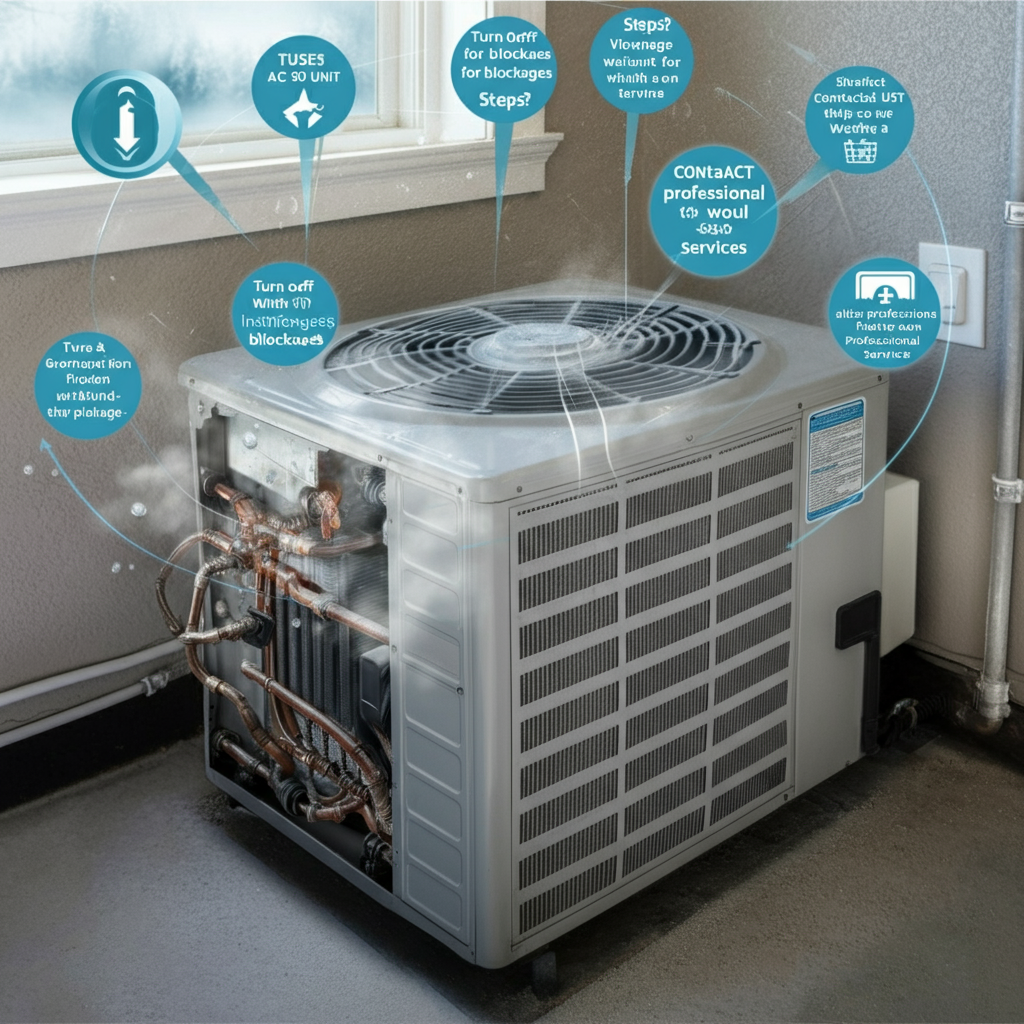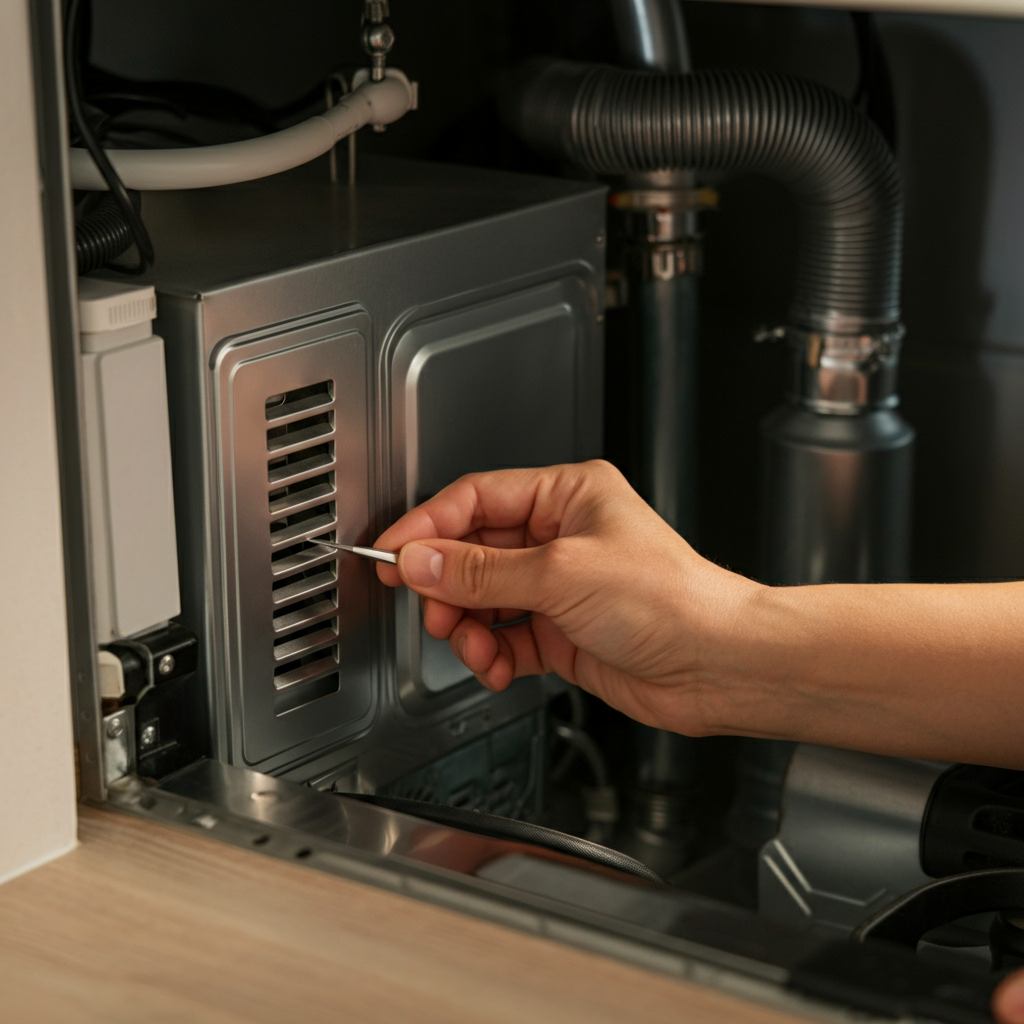
Air conditioners are a lifesaver during sweltering summers, but what happens when they freeze up inside? While an AC Unit Freezes Up might seem contradictory, it’s a common issue experienced by many homeowners. When left unchecked, a frozen AC unit can lead to reduced efficiency, higher energy bills, and even permanent system damage.

Table of Contents
Why Does an AC Unit Freeze Up?
Understanding the root causes of a frozen AC is the first step to solving the problem. Here are the most common reasons this issue occurs:
1. Restricted Airflow
Your AC relies on proper airflow to function effectively. When airflow is reduced (due to dirty air filters or blocked vents), the evaporator coil may become too cold. The moisture in the air then freezes on the coil, eventually causing the entire unit to freeze.
2. Low Refrigerant Levels

Refrigerant is essential for the cooling process in an AC system. If the refrigerant levels drop due to leaks or insufficient charge, it can cause the evaporator coil to operate at a lower temperature, leading to freezing.
3. Dirty Evaporator Coils
Dust and debris on the evaporator coil act as insulation, preventing proper heat transfer. This can cause the coil to freeze since it’s unable to maintain the ideal temperature.
4. Thermostat Settings Issues
A thermostat setting that’s too low for extended periods can push the AC system beyond its limits, increasing the chances of freezing. This issue is prevalent on extremely hot days when the cooling system is under heavy use.
What to Do When Your AC Freezes Up
Follow these steps to safely and effectively address the issue:
Step 1: Turn Off the AC Immediately
Switch your air conditioner off at the thermostat to prevent further damage. Keep the fan running to help melt any accumulated ice on the evaporator coil.
Step 2: Inspect and Replace the Air Filter
Check your air filter. If it’s dirty or clogged, replace it with a new one. A clean air filter helps restore proper airflow, which is crucial for preventing freezing.
Step 3: Thaw the Unit
Allow the ice on the evaporator coil to melt completely. This can take a few hours or an entire day, depending on the extent of the freezing. Avoid using heat sources to speed up the process, as this can damage the system.
Step 4: Check for Blocked Vents
Ensure all supply and return vents are open and unobstructed. Furniture, curtains, or other objects blocking airflow can contribute to freezing issues.
Step 5: Inspect the Refrigerant Levels
Low refrigerant levels require professional assistance. Contact a licensed HVAC technician to check for leaks, recharge the refrigerant, and ensure the system is balanced correctly.
Step 6: Clean the Coils

Dirty evaporator coils might need cleaning. Please turn off the unit, access the coils, and carefully clean them using a specially designed coil cleaner or soapy water. If you’re unsure, call a professional for assistance.
Preventing Your AC Unit From Freezing
A frozen AC unit isn’t just inconvenient; it can also result in costly repairs. Use these preventive tips to keep your system running smoothly:
1. Replace Air Filters Regularly
Replace your air filter every 1–3 months, depending on usage and the type of filter. Clean filters maintain proper airflow and improve your system’s efficiency.
2. Schedule Routine Maintenance
Hire an HVAC technician to inspect and service your AC system at least once a year. Regular maintenance prevents issues before they become significant problems.
3. Monitor Refrigerant Levels
Ask your HVAC technician to check for refrigerant leaks and ensure proper levels during routine tune-ups. This helps maintain the health of your cooling system.
4. Maintain Open Vents
Make sure all supply and return vents are open and unobstructed in every room. This ensures proper airflow throughout your home.
5. Keep Coils Clean
Dirty evaporator coils can lead to frequent freezing. Ask your technician to clean the coils during maintenance, or carefully do it yourself if comfortable.
6. Set the Thermostat Wisely
Avoid setting your thermostat too low for prolonged periods, especially during extremely hot weather. Moderate settings help avoid unnecessary strain on your cooling system.
When to Call a Professional
While some issues causing a freezing AC can be resolved through basic troubleshooting, others require professional attention. Consult an HVAC technician if you notice the following:
- Frequent or recurring freezing issues
- Unusual noises or odours from the AC unit
- Visible signs of refrigerant leakage
- Poor cooling performance despite following the steps above
Licensed professionals have the tools and expertise needed to repair complex issues and ensure your system operates efficiently.
Say Goodbye to Frozen AC Woes
A frozen AC unit doesn’t have to ruin your summer. By understanding the causes, following a step-by-step approach to fix it, and implementing preventive measures, you can keep your home cool and comfortable all season long.
